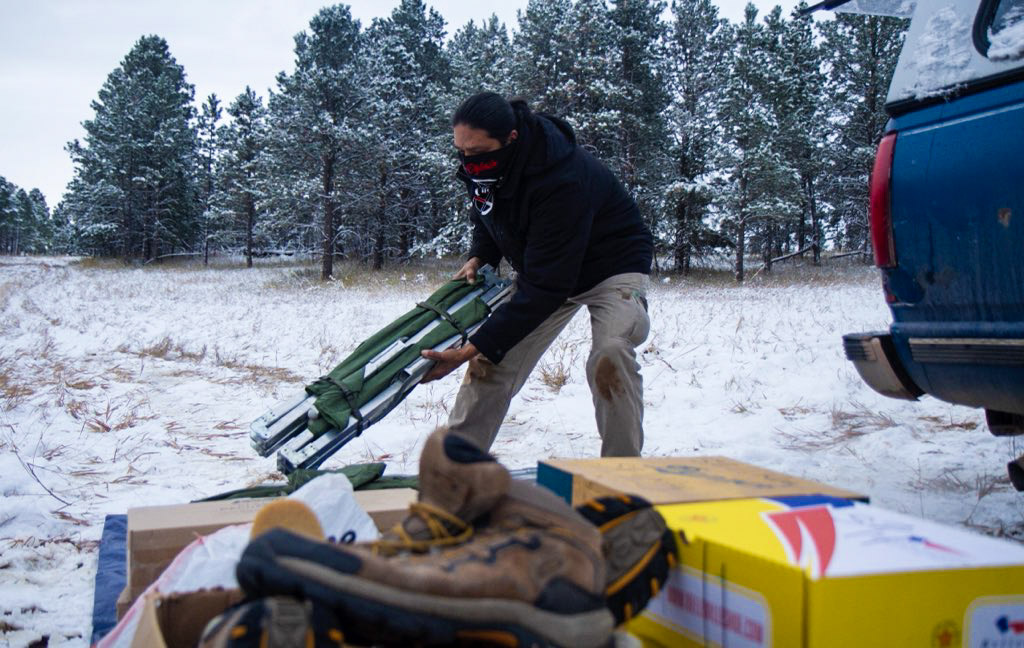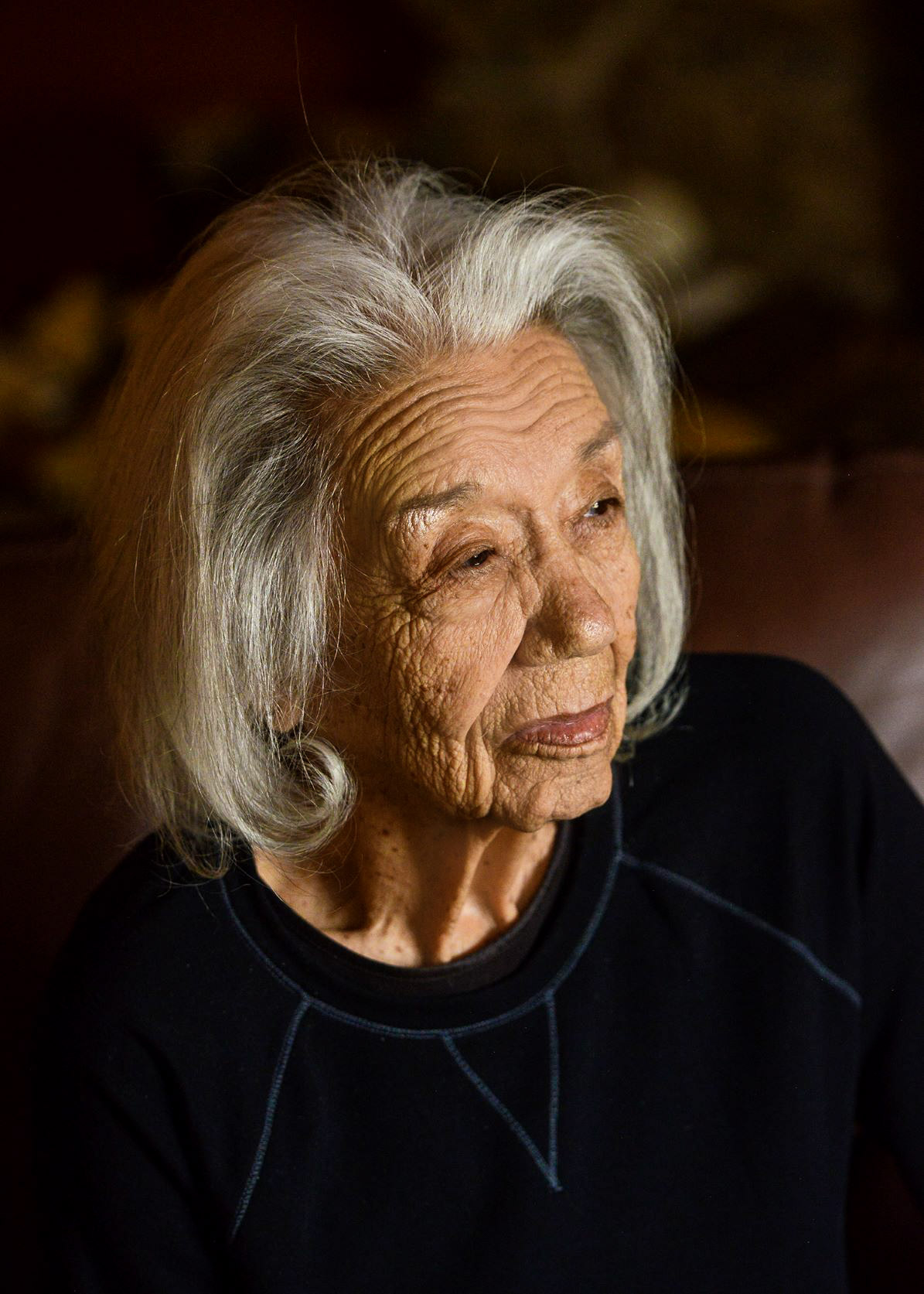Indianz.Com > News > Elizabeth Cook-Lynn: Ancestors have given us the courage to remember

What do YOU stand by and defend?
Monday, November 16, 2020
• Support Camp Mni Luzahan
“Creek Patrol created Camp Miniluzahan on tribal land outside of Rapid City on Sunday” read the headline in the Rapid City Journal on October 12, 2020.
The “tribal lands” spoken of here are part of the hills and forest that are the lands stolen and claimed (1880) and occupied illegally by an imposed white-man regime of invaders called Americans stretching up into the lush acres of homelands where the Sioux Nation has lived for thousands of years.
The public is told today that the site of the Creek Patrol camp is part of the 1,200 acre Rapid City Boarding School property that was owned and operated by the Department of the Interior from 1898-1933. Its title is still contested since it is the treaty lands of a sovereign tribal People.
It is, in itself, a continuation of land issue violence stemming from one of the most famous historical land theft crimes of all of Indian country, the Black Hills. (Reference: 1868-1920-1980).

NATIVE SUN NEWS TODAY
Support Native media!
Read the rest of the story on Native Sun News Today: What do YOU stand by and defend?
Elizabeth Cook-Lynn is a retired Professor of Native Studies. She taught at Eastern Washington University and Arizona State University. She currently lives in the Black Hills of South Dakota. She has written 15 books in her field. One of her latest is Anti-Indianism in Modern America: A Voice from Tatekeya’s Earth, published by University of Illinois Press.
Note: Copyright permission Native Sun News Today
Search
Filed Under
Tags
More Headlines
DVIDS: Mescalero Apache Tribe welcomes military aid after flooding
NAFOA: 5 Things You Need to Know this Week (August 4, 2025)
Chuck Hoskin: Cherokee Nation writes new chapter in education
Native America Calling: Native educators grapple with burnout
Cronkite News: Farm offers horse therapy for adults and youth
Native America Calling: Indigenous economic opportunities and threats in the Arctic
Native America Calling: Bridging Indigenous cultures across the Arctic
Cronkite News: Speculation surrounds visit by Sen. Ruben Gallego (D-Arizona)
Native America Calling: A giant leap for Muscogee Freedmen citizenship
Cronkite News: Stars shine at Native American Basketball Invitational
Native America Calling: Reclaiming and growing Hawaiian kapa traditions
Tom Cole: Working for Oklahoma’s Fourth Congressional District
Montana Free Press: IndigiPalooza celebrates Native arts and cultures
Cronkite News: Indian Country continues to oppose racist imagery in sports
Oklahoma Voice: Conservative education official claims ‘no knowledge’ of nude imagery during meeting
More Headlines
NAFOA: 5 Things You Need to Know this Week (August 4, 2025)
Chuck Hoskin: Cherokee Nation writes new chapter in education
Native America Calling: Native educators grapple with burnout
Cronkite News: Farm offers horse therapy for adults and youth
Native America Calling: Indigenous economic opportunities and threats in the Arctic
Native America Calling: Bridging Indigenous cultures across the Arctic
Cronkite News: Speculation surrounds visit by Sen. Ruben Gallego (D-Arizona)
Native America Calling: A giant leap for Muscogee Freedmen citizenship
Cronkite News: Stars shine at Native American Basketball Invitational
Native America Calling: Reclaiming and growing Hawaiian kapa traditions
Tom Cole: Working for Oklahoma’s Fourth Congressional District
Montana Free Press: IndigiPalooza celebrates Native arts and cultures
Cronkite News: Indian Country continues to oppose racist imagery in sports
Oklahoma Voice: Conservative education official claims ‘no knowledge’ of nude imagery during meeting
More Headlines
